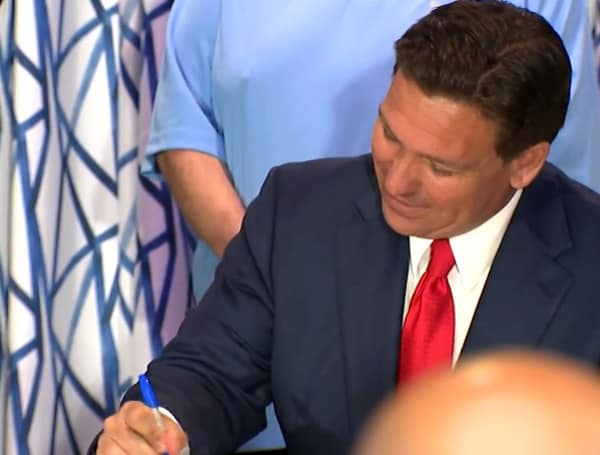
Attorneys for a transgender man and parents of trans children have urged a federal appeals court to reject Florida’s request to reinstate restrictions on treatments for gender dysphoria while ongoing legal proceedings continue.
On July 17, the state filed a motion with the 11th U.S. Circuit Court of Appeals seeking a stay on U.S. District Judge Robert Hinkle’s ruling, which blocked last year’s restrictions on treatments for transgender individuals. If granted, the stay would allow the restrictions to be enforced while the appeals court reviews the state’s appeal—a process that could take months.
Read: Florida And Arizona Senators Introduce Bill To Counter Chinese Influence In Strategic Ports
In a 46-page response filed Monday, the plaintiffs’ attorneys argued that the appeals court should reject the motion, asserting that state officials failed to prove Judge Hinkle’s findings were “clearly erroneous.”
“Neither defendants nor the public will suffer any harm from allowing transgender Floridians to maintain the same access to medical care that they had for many years before 2023,” the response stated. “In contrast, the trial evidence demonstrated the real and serious harms that plaintiffs and class members will continue to suffer if they are unable to access treatments that have been shown to be safe and effective in relieving the symptoms of gender dysphoria.”
The attorneys highlighted Judge Hinkle’s detailed findings, which indicated that the legislative and rulemaking processes were influenced by animus and an improper purpose to target transgender individuals for adverse treatment.
Last month, Judge Hinkle barred state health officials from enforcing the 2023 law and regulations, which prohibited the use of puberty blockers and hormone therapy to treat minors with gender dysphoria and imposed stricter regulations for transgender adults seeking care. In his 101-page ruling, Hinkle affirmed that “gender identity is real” and compared opposition to transgender individuals to racism and misogyny.
Read: Polk County: Orlando Woman Faces Additional DUI Manslaughter Charge In Fatal Davenport Crash
“The state of Florida can regulate as needed but cannot flatly deny transgender individuals safe and effective medical treatment — treatment with medications routinely provided to others with the state’s full approval so long as the purpose is not to support the patient’s transgender identity,” Hinkle wrote.
Florida promptly appealed and, in its motion for a stay, disputed Hinkle’s conclusions regarding animus toward transgender people, arguing that the state suffers “irreparable harm” due to the injunction. The motion requested a stay “as soon as practicable,” citing concerns about the administration of “risky, possibly ineffective, and certainly life-altering treatments.”
In recent years, Florida and other Republican-controlled states have passed numerous laws and regulations targeting transgender individuals, particularly focusing on restricting the use of puberty blockers and hormone therapy for minors with gender dysphoria.
The federal government defines gender dysphoria as “significant distress that a person may feel when sex or gender assigned at birth is not the same as their identity.”
Read: Florida Burger King Customers Sue Over Alleged Assault By French Fries, Box Cutter In Tampa
The 2023 Florida law also impacted transgender adults by allowing only physicians—not nurse practitioners—to approve hormone therapy and banning the use of telehealth for new prescriptions. Opponents argued these restrictions severely reduced access to hormone therapy for adults.
Governor Ron DeSantis’ administration has consistently challenged the effectiveness of gender-dysphoria treatments, especially for minors.
“Letting the state’s laws stand pending an appeal makes the most sense,” the motion for a stay stated. “Whether the state chooses to use a hammer or a scalpel to regulate gender-dysphoria treatments is a matter for the state to decide.”
However, the plaintiffs’ attorneys countered in Monday’s response that state officials “offer no evidence of anyone in Florida receiving inadequate care or suffering adverse consequences, nor do they provide any evidence suggesting that minors would be better off receiving no medical treatment at all than the same care that was available until 2023.”
“Lastly, the public does not have an interest in preventing transgender people from accessing needed medical care,” the response concluded. “Nor does the public have an interest in the state’s enforcement of an unconstitutional law.”
Help support the Tampa Free Press by making any small donation by clicking here.
Android Users, Click To Download The Tampa Free Press App And Never Miss A Story. Follow Us On Facebook and Twitter. Sign up for our free newsletter.
